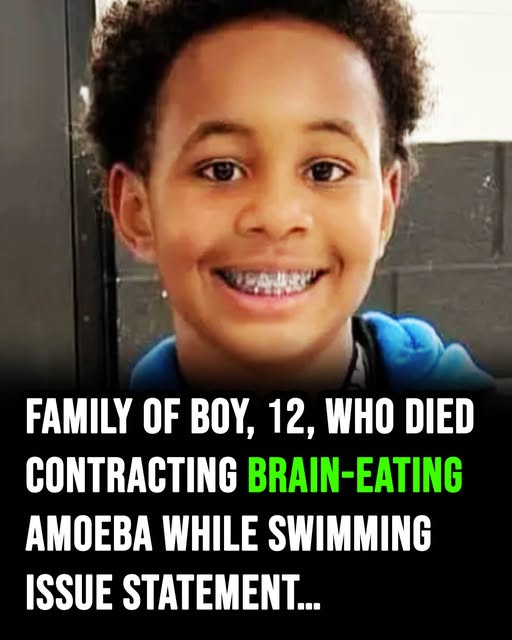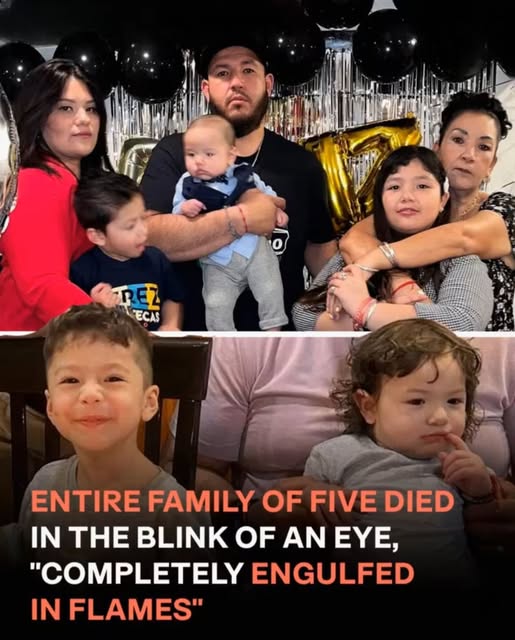A South Carolina family is mourning the loss of their 12-year-old son, Jaysen Carr, whose life was tragically cut short after contracting a rare and deadly brain infection caused by a brain-eating amoeba. What began as a joyful day of swimming and sunshine at Lake Murray on the Fourth of July turned into a nightmare that no parent should ever endure.
According to the South Carolina Department of Health, Jaysen was exposed to Naegleria fowleri, a microscopic organism commonly referred to as the “brain-eating amoeba.” It enters the body through the nose when water is forced upward—often during swimming, diving, or jumping into warm freshwater. Once inside, it travels to the brain, causing primary amebic meningoencephalitis (PAM), a rapidly progressing and almost always fatal infection.
After days of unexplained symptoms, Jaysen was rushed to Prisma Health Children’s Hospital-Midlands, where doctors confirmed the diagnosis. Despite their best efforts, the infection moved faster than anyone could stop. He passed away soon after, surrounded by his devastated parents, Clarence and Ebony Carr. The Department of Health noted it was South Carolina’s first confirmed case of Naegleria fowleri since 2016.
The Centers for Disease Control and Prevention (CDC) describes the amoeba as naturally occurring in warm freshwater lakes, rivers, ponds, and hot springs across the world. It thrives in high temperatures—especially during the summer—and can even be found in poorly maintained pools, splash pads, and, in rare cases, tap water. Between 1962 and 2024, only 167 infections were recorded in the United States. Of those, just four people survived.
At a press conference held earlier this week, Jaysen’s parents spoke publicly for the first time since his passing. Their message was simple but urgent: awareness saves lives. “This is a very tough situation,” Clarence Carr said, fighting to maintain his composure. “We’re doing the best that we can, but please understand—we don’t want this to happen to anyone else. We’re here to raise public awareness and go from there.”
Beside him, Ebony wore her son’s all-state champion headband—one of the few physical reminders she has left of the boy who filled their home with laughter. Her voice trembled as she spoke about the painful what-ifs that haunt every parent who loses a child. “If we had known the risks of swimming in that lake, we never would’ve gone near it,” she said. “We want the public to know there are major dangers in warm freshwater, especially lakes like Lake Murray. There needs to be more awareness. We don’t want his death to be in vain—because if we’d known, he’d still be here.”
In the days following Jaysen’s passing, health officials have reiterated key safety measures to reduce the risk of infection. The CDC recommends keeping your head above water in hot springs, avoiding jumping or diving into warm freshwater during peak summer months, and using a nose clip or holding your nose shut when underwater. While infections are extremely rare, the consequences are devastating, and prevention remains the only effective safeguard.
The symptoms of Naegleria fowleri infection can mimic common illnesses in the early stages—fever, nausea, vomiting, and headache—but rapidly worsen as the parasite attacks the brain. Victims often develop confusion, seizures, stiff neck, hallucinations, and eventually coma within days of exposure. The disease moves so quickly that by the time it’s diagnosed, it’s usually too late for treatment to help.
For the Carr family, the loss has left an unfillable void. Jaysen was a bright, energetic child—an honor-roll student, an athlete, and a loving big brother. His family describes him as a natural leader, known for his kindness and boundless curiosity. He dreamed of becoming an engineer and was already tinkering with gadgets and machines, fascinated by how things worked.
A GoFundMe campaign was launched to support the family through the financial aftermath of the tragedy. The fundraiser, which has already surpassed $58,000, paints a vivid picture of who Jaysen was: “Jaysen was an incredible son, a devoted brother, and a true friend to everyone who knew him. His kind heart and bright spirit left a lasting impact on everyone he met. He faced a medical battle with courage beyond his years, and while his strength inspired us all, the journey has left the Carr family with immense emotional and financial burdens.”
As donations continue to pour in, so too do words of comfort and heartbreak from friends, neighbors, and strangers who were moved by Jaysen’s story. “Our community is grieving alongside them,” one local teacher wrote. “Jaysen was the kind of kid who made every classroom brighter. His loss is felt by everyone who knew him.”
Beyond their grief, Clarence and Ebony are determined to turn their pain into purpose. They’re calling for stronger public health warnings, more education about the dangers of amoeba infections, and increased research funding for potential treatments. “We can’t bring him back,” Clarence said quietly, “but maybe we can save the next family from going through this.”
Experts agree that awareness is crucial. Dr. Allison Greene, an infectious disease specialist not involved in Jaysen’s case, said the rarity of Naegleria fowleri often leads to complacency. “It’s true that these cases are incredibly rare, but when they do occur, the outcome is nearly always fatal,” she explained. “That’s why education is so important. People need to understand how and where this amoeba lives and how to minimize exposure.”
She emphasized that the amoeba cannot be contracted by swallowing water—it must enter through the nose. Activities like diving, jumping, or water sports that force water upward into the nasal passages pose the highest risk.
For now, Lake Murray remains open, though health officials are urging caution during warm weather months. Signs may soon be posted to inform swimmers about the risks of waterborne pathogens, including Naegleria fowleri.
Meanwhile, Jaysen’s parents continue to process the unimaginable—an ordinary day that became a turning point in their lives. In the quiet moments, Ebony says she replays their last conversation over and over in her mind. “He told me he loved me before he went swimming,” she said softly. “He always did. That was just who he was.”
Her husband nodded. “He was full of life. He loved the outdoors, loved to laugh, loved his friends. You never think something like this could happen doing something as simple as swimming on a summer day.”
As the Carr family moves forward, their message remains one of heartbreak and hope. They want parents everywhere to know that even rare dangers deserve attention. “This can happen to anyone,” Clarence said. “You don’t have to be in some exotic place—it can happen right in your backyard. Please, be careful.”
In Jaysen’s memory, his family plans to start a nonprofit dedicated to spreading awareness about Naegleria fowleri and other rare infections that often go unnoticed until it’s too late. They hope to partner with schools and local governments to provide educational materials and promote water safety in communities across the South.
For now, though, they’re focused on grieving their son—the boy who loved music, video games, and family dinners, who had a smile that could light up a room.
“Jaysen was our world,” his mother said. “We don’t know how to move on without him. But we’ll make sure the world knows his name—and that no one else has to lose a child this way.”
Rest in peace, Jaysen Carr. Your story will not be forgotten.

